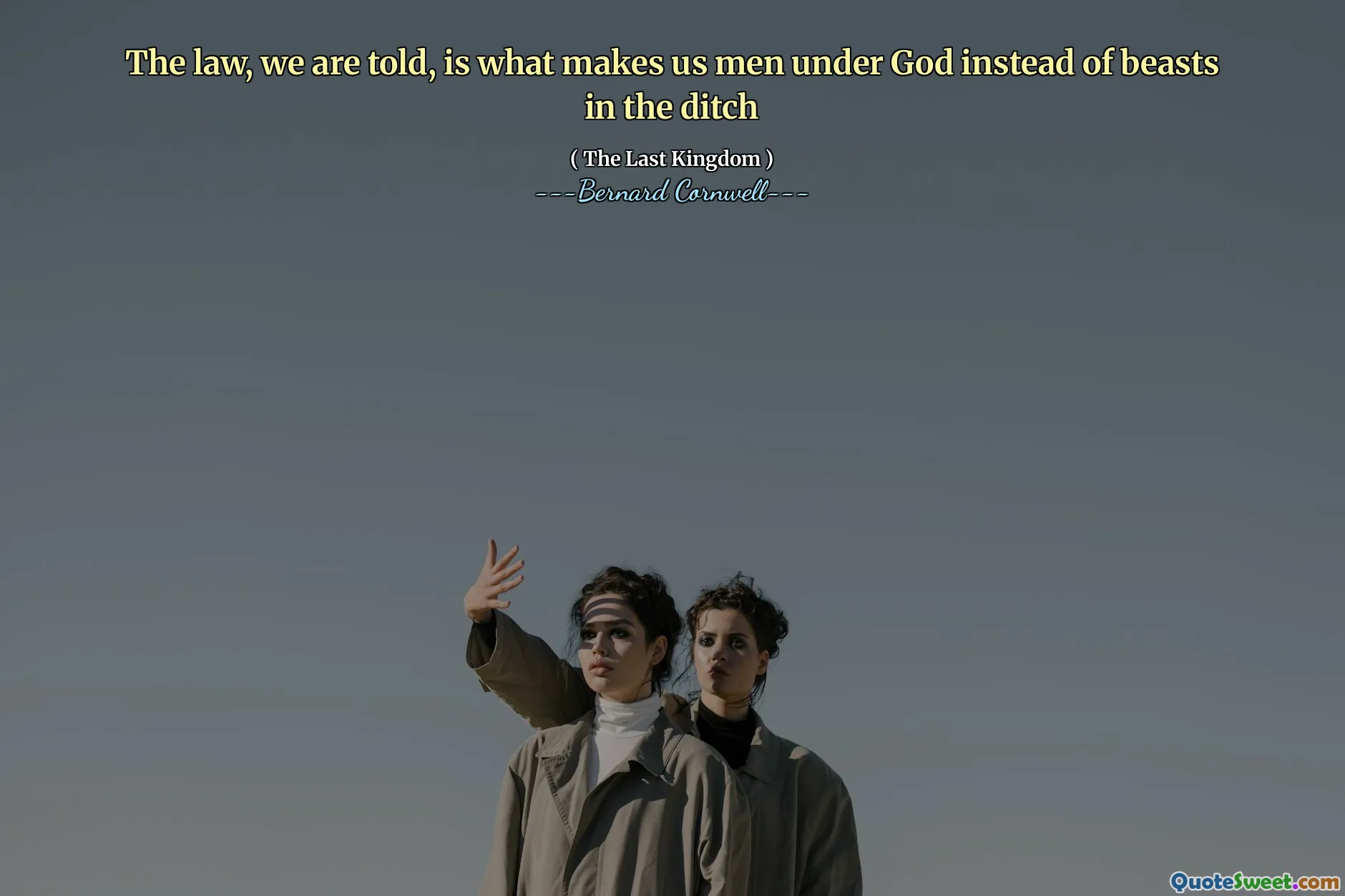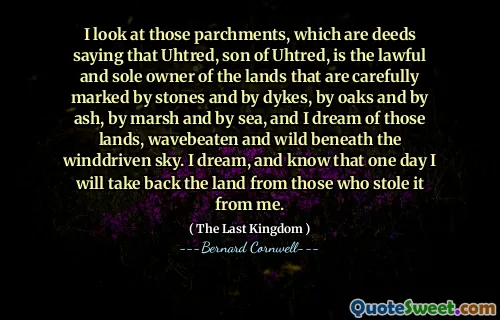
The law, we are told, is what makes us men under God instead of beasts in the ditch
This quote from Bernard Cornwell's "The Last Kingdom" encapsulates a profound truth about the role of law in human society. It suggests that law is not merely a set of arbitrary rules but a foundational force that distinguishes humanity from chaos and savagery. The phrase "men under God" implies a recognition of a higher moral authority, suggesting that lawful society is aligned with divine order and ethical principles. In contrast, "beasts in the ditch" conjures an image of primal, unordered existence, where survival overrides any sense of justice or community. This stark contrast emphasizes that law serves as a social contract binding individuals together, providing structure, justice, and dignity. Without laws, society would regress into a state of nature where power and violence dominate. The idea resonates deeply because it reminds us that the rule of law is crucial for maintaining civilization and protecting the vulnerable. It elevates human behavior above instinctual impulses by imposing standards for conduct and fairness. Moreover, it appeals to the philosophical conception of law as an expression of shared values that uphold human rights and order. While laws are often contested and imperfect, this quote highlights the aspirational dimension of law—as a beacon guiding humanity away from nihilism and degradation and toward a collective existence rooted in respect and morality. It's a compelling reminder of why we codify and respect laws: to safeguard our humanity and ensure a society where people can coexist under principles that transcend mere survival.









